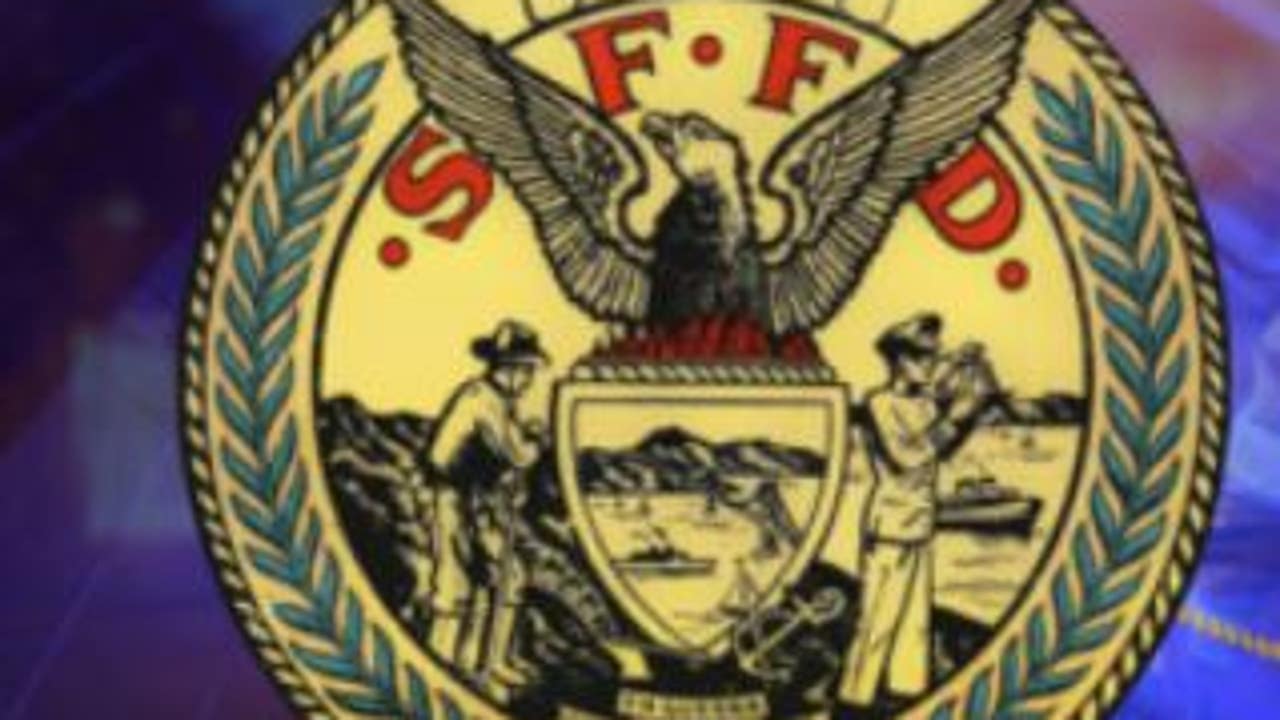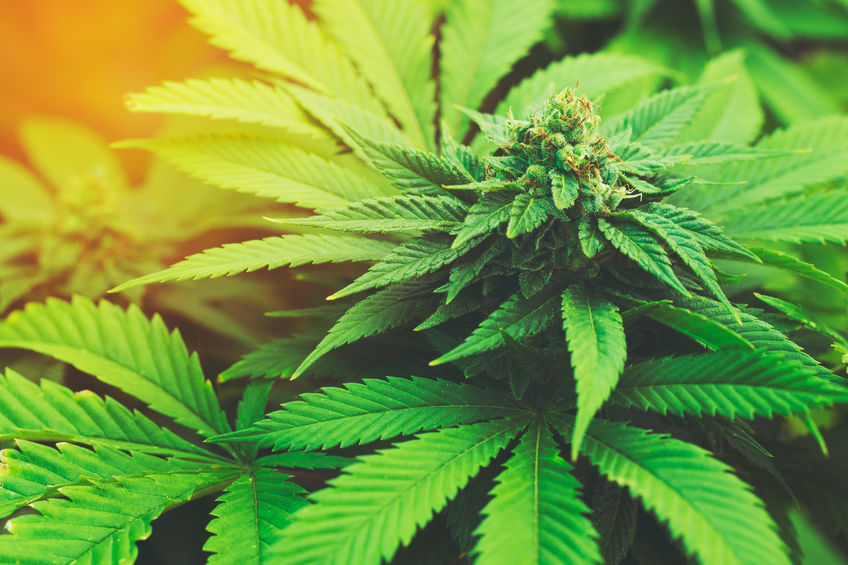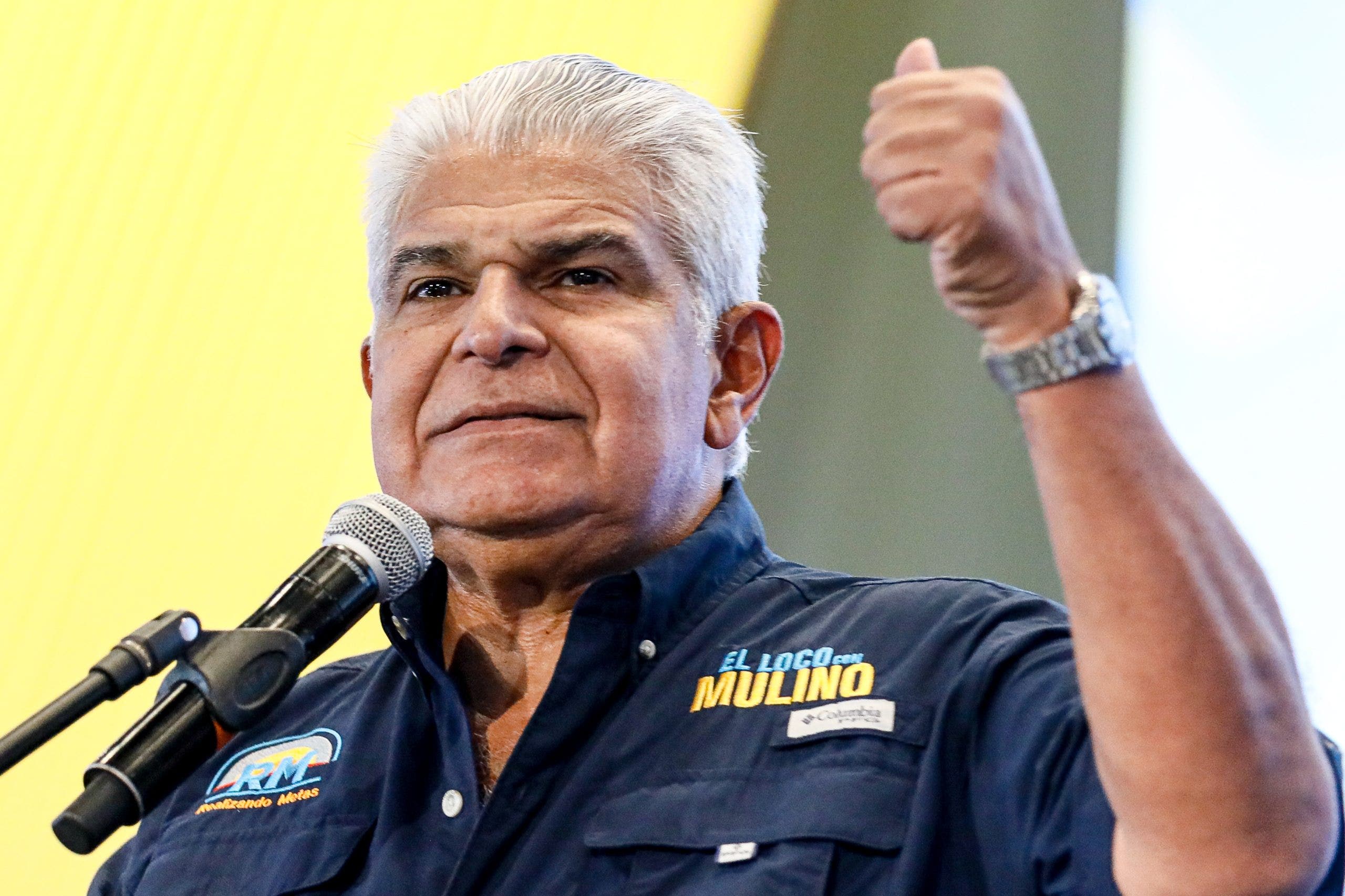World
Back to school: Muslim girls battle France’s abaya ban
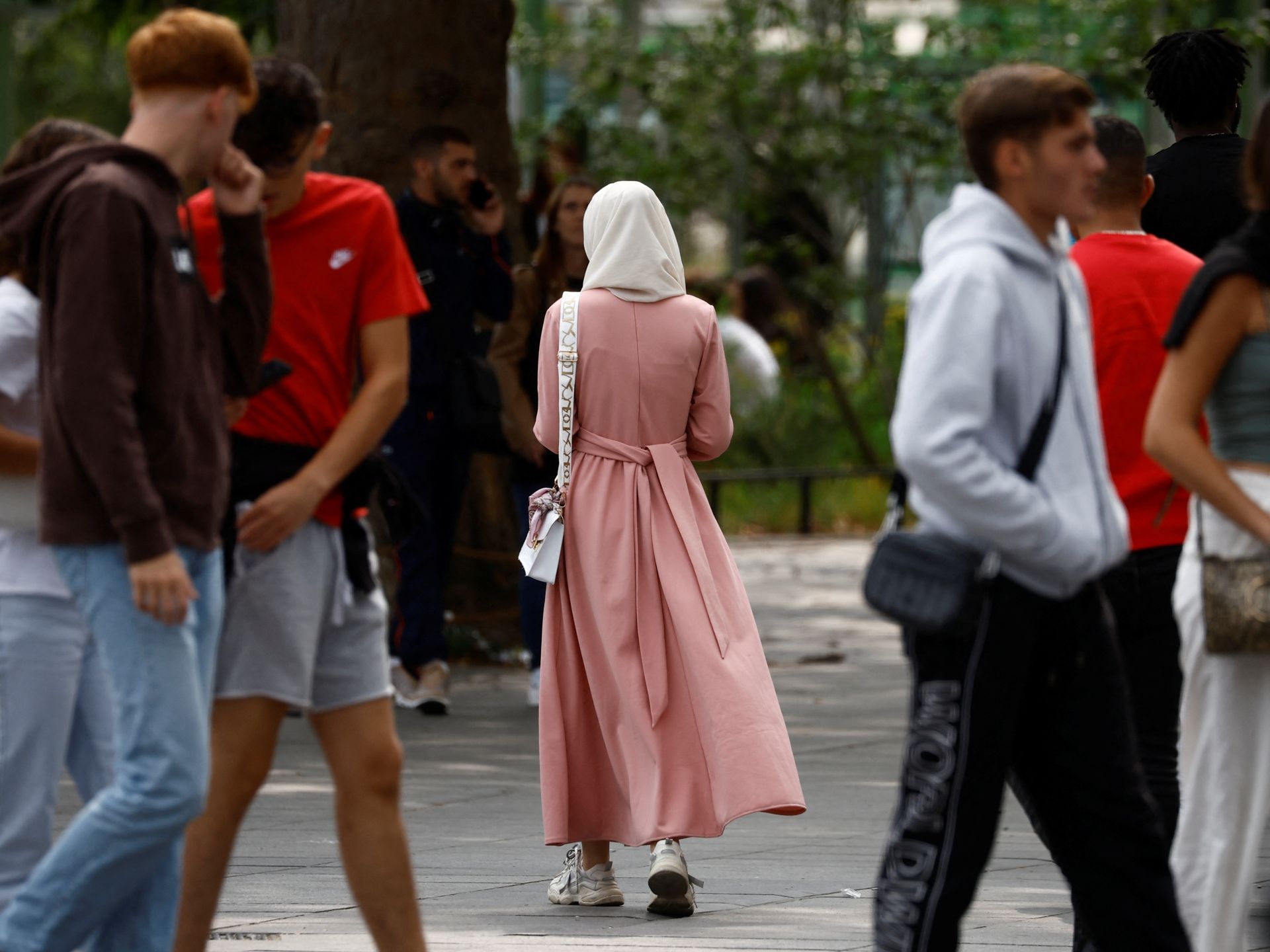
French students returned to class facing yet another battle over what some Muslim girls are choosing to wear. This time, it is the abaya – a long, loose-fitting dress. Dozens of students were sent home after nearly 300 showed up on the first day of classes in abayas. French women have been here for a while now: head coverings, including the hijab, were first banned in public schools back in 2004. So, how will this latest ban affect Muslim students and communities today?
In this episode:
- Loubna Reguig (@loubnasays), national president of the Muslim Students of France
Episode credits:
This episode was produced by Sonia Bhagat, Chloe K. Li and our host Malika Bilal. Miranda Lin fact-checked this episode.
Our sound designer is Alex Roldan. Our lead of audience development and engagement is Aya Elmileik. Munera AlDosari and Adam Abou-Gad are our engagement producers.
Alexandra Locke is The Take’s executive producer, and Ney Alvarez is Al Jazeera’s head of audio.
Connect with us:
@AJEPodcasts on Twitter, Instagram, and Facebook

World
EU's divided right wing can disrupt if it finds greater unity: experts
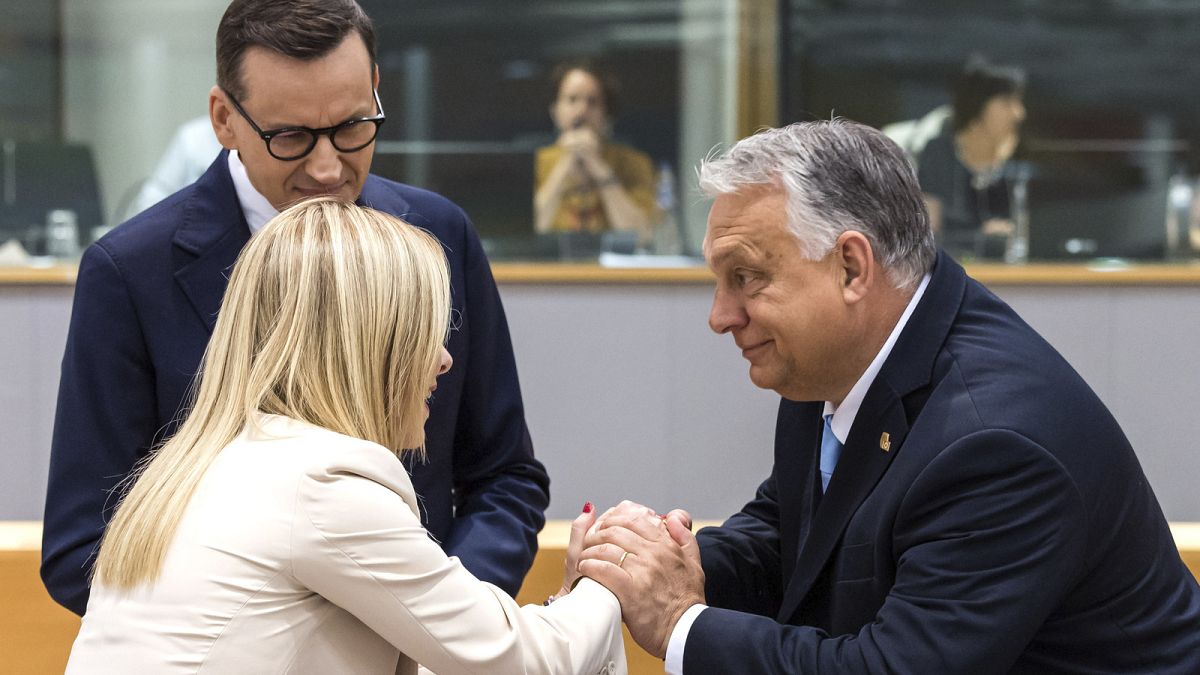
They’re set to make historic gains in June’s European elections, but Europe’s rising right wing parties need to find unity if they are to wield greater influence on the EU stage, experts tell Euronews.
Across the bloc, hard-right parties are roping in voters with promises to slash migration figures, slam the brakes on climate action and strip back EU powers – all in defence of so-called “national sovereignty.”
The right-wing surge predicted by the polls has raised concern that a bolstered Eurosceptic camp could strain the coalition of progressive, pro-European parties that has reigned over Brussels for decades.
But these right-wing parties remain deeply disunited on a raft of critical issues – in particular foreign policy, the EU’s support for Ukraine and the rule of law. These divisions mean that forming a united right-wing bloc in the European Parliament is currently inconceivable.
But experts say that Europe’s hard right could build greater “discipline” and put its house in order following June’s election to progress its agenda on the EU stage.
“There is an assumption that just because they differ so much, they are such a mixed group of politicians and parties that they will never offer a consistent platform and therefore they are not such a big danger,” Pawel Zerka, senior policy fellow at the European Centre for Foreign Relations, said.
“This is far from given,” Zerka warned. “It’s possible that also they become more disciplined and more co-operative because they realise that it’s in their interest to have a more consistent and united voice in the European Parliament.”
“So we shouldn’t prematurely assume that they will be a disagreeing, chaotic bunch,” he added.
‘Big changes’ looming
In the European Parliament, right-wing parties are split into two political families.
The radical, far-right Identity and Democracy (ID) group – which is set to clinch some 82 seats (+23) in June – hosts the likes of Marine Le Pen’s Rassemblement National, Geert Wilders’ Dutch Party for Freedom, Matteo Salvini’s Lega and Alternative for Germany. It will compete with the centrist Renew Europe to become the parliament’s third-biggest force.
The traditionally softly Eurosceptic European Conservatives and Reformists (ECR) group meanwhile includes Giorgia Meloni’s Fratelli d’Italia, Poland’s Law and Justice (PiS), Spain’s Vox and the Sweden Democrats. Polls predict ECR will gain seven more seats to reach a total of 75 lawmakers in the next European Parliament.
ID is generally seen as more radical, more anti-European and more hardline in its views on key issues such as migration. But the ideological lines that split these two groups are sometimes incoherent.
For example, Spain’s Vox belongs to ECR while Portugal’s Chega belongs to ID, despite their close political affinities and Chega often being branded the “Portuguese Vox.”
In France, Eric Zemmour’s Reconquête! is also part of ECR, despite many seeing the party as more radical than its national competitor, Marine Le Pen’s Rassemblement National, which is part of ID.
ECR harbours other hard-line groups such as the Sweden Democrats and the Finns Party, which many feel would find a more politically suitable home within ID.
With the elections set to trigger a realignment of the parliament, analysts say parties are actively looking to reconfigure their membership in order to bolster their influence.
“I would not be surprised if big changes take place ahead of these elections,” Francesco Nicoli, visiting fellow at Bruegel, told Euronews.
Fidesz, the ultra-nationalist right-wing party of Hungarian premier Viktor Orbán, which currently has no group after it was expelled from the centre-right European People’s Party (EPP) in 2022, could be looking to join the ECR, whilst Giorgia’s Meloni’s Fratelli d’Italia is seen as a possible contender to join or form bridges with the mainstream centre-right EPP.
Nicoli also explained that the election of the European Commission President, a process which in principle should be driven by the results of the elections, could also trigger big changes in the way the right operates in the parliament.
Outgoing President Ursula von der Leyen, tipped to secure a second term, has left the door ajar to working with ECR post-election, with EPP sources citing Meloni’s Fratelli d’Italia and Czech premier Peter Fiala’s ODS – both members of ECR – as parties that share the EPP’s core values.
“Because of von der Leyen’s personal relationship with Meloni and because she needs votes, it’s possible that she will poke holes into the cordon sanitaire,” Nicoli explained, referring to the firewall that has traditionally prevented mainstream parties from collaborating with the hard right.
Shifting degrees of Euroscepticism
Parties from both the ECR and ID groups have in recent years shifted in their degrees of scepticism towards the European institutions in Brussels. It means parties sitting within the same groups have slightly different perceptions of how to defend their national interest vis-a-vis the EU capital.
The ID group harbours previously staunch anti-Europeans such as the Netherlands’ Geert Wilders and France’s Le Pen, both of whom have in the past promised voters a referendum on EU membership.
But Le Pen has significantly softened her anti-European rhetoric over the past eight years, abandoning plans to leave the bloc and advocating for the defence of French sovereignty by curbing European integration and “reforming” the bloc – a stance more compatible with that of ECR. Wilders has similarly abandoned his call for the Netherlands’ EU exit.
“Marine Le Pen’s RN party has evolved and is no longer necessarily against the European Union as a principle. The same applies to Alternative for Germany (AfD),” Bruegel’s Nicoli explained.
Meanwhile the ECR harbours a range of nation-first parties whose stance on EU integration seems to be drifting ever further apart. Italian premier Meloni and Czech premier Fiala – both of whose parties belong to ECR – are seen as constructive partners in Brussels circles.
But fellow ECR member Sweden Democrats vowed as recently as last February to purge Sweden’s constitution of references to the European Union. Prominent figures within the Finns Party – also ECR – have expressed a long-term goal of leaving the EU. Poland’s Law and Justice (PiS) also veered from Eurosceptic to anti-European during its eight-year stint in power, which ended last year.
Divided on Ukraine, Russia
Similarly, on Ukraine, Europe’s hard right parties are deeply divided.
Bulgaria’s blatantly pro-Russian Vazrazhdane (Revival) party joined the ID group this February, days after it sent a delegation to Moscow to meet representatives of Vladimir Putin’s United Russia party, and despite other parties within the group trying to purge themselves of historic ties to the Kremlin.
Marine Le Pen, whose party has traditionally been marred by allegations of proximity to the Kremlin, has aimed to scrub Rassemblement National of its pro-Russian image
Her party, whose European campaign is spearheaded by Le Pen’s protégé Jordan Bardella, backs supporting Ukraine’s efforts to withhold Russia’s assault in principle, but nonetheless opposes Ukraine’s EU accession and calls for curbing French military aid to Kyiv.
Meanwhile, Orbán’s efforts to frustrate EU decisions on aid to Ukraine mean his Fidesz party’s possible entry into ECR would probably be a no-go for staunchly pro-Ukraine Law and Justice (PiS) and the Finns party, which defected from ID to ECR last year in a bid to cut its ties with Putin-friendly parties.
World
The Cleaning Lady Renewed for Season 4 at Fox Amid Backstage Shakeup

ad
World
Police bust finds over 700 pounds of drugs inside Transformers statues

Thailand authorities made a startling discovery when they busted open lifesize Transformer robot statues and retrieved over 700 pounds of ketamine.
“Currently, we are facing a drug trafficking problem with transnational crime networks hidden in all regions, using Thailand as a base to smuggle drugs to third countries continuously through international shipments via air or sea,” Police Lt. Gen. Phanurat Lhakbun told reporters of the bust, which happened on April 25.
Australian authorities found around 220 pounds of methamphetamine that an unidentified woman tried to smuggle inside a food processing machine on March 12, and they kept an eye on her activities in the following weeks, Viral Press reported.
She allegedly tried to smuggle an even bigger batch of drugs inside the bases of lifesize statues of the Transformers characters Optimus Prime, Bumblebee and Greenlight and others. The statues ostensibly were to go to a movie exhibition in Taiwan, Channel News Asia reported.
THAILAND’S PRIME MINISTER MOVES TO OUTLAW MARIJUANA 2 YEARS AFTER ITS DECRIMINALIZATION
Police seized hundreds of pounds of ketamine hidden inside lifesize Transformer robots in Thailand. (Viral Press)
The woman allegedly paid around $4,800 to the shipping company to help her transport the statues. Authorities said she had received instructions from another unidentified woman in Laos who would receive the drugs. The narcotics board claimed that the drugs originated in Cambodia, and they have agents working to track down any accomplices in Taiwan.
FOUR FLIGHT ATTENDANTS ACCUSED OF USING TSA CLEARANCE TO SMUGGLE DRUG MONEY
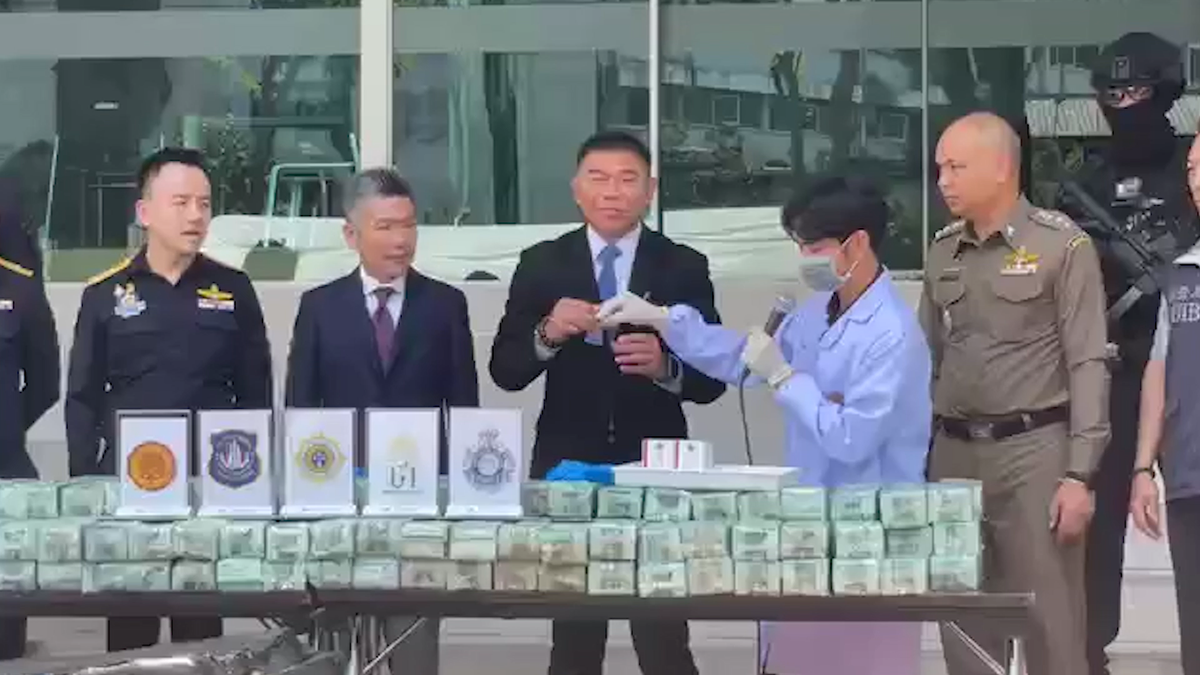
The Thailand Narcotics Suppression Board presents the seized drugs, totaling around 700 pounds of ketamine. (Viral Press)
“The ONCB has cooperation projects with the Airport Interdiction Task Force to suppress and intercept drugs in airports and the Seaport Interdiction Task Force for intercepting drug imports to the inner part of the country and exports to third countries,” Phanurat said.
VIRGINIA FIRST LADY, AG TEAM WITH RECOVERING ADDICT TO LAUNCH INITIATIVES TARGETING STATE’S FENTANYL CRISIS
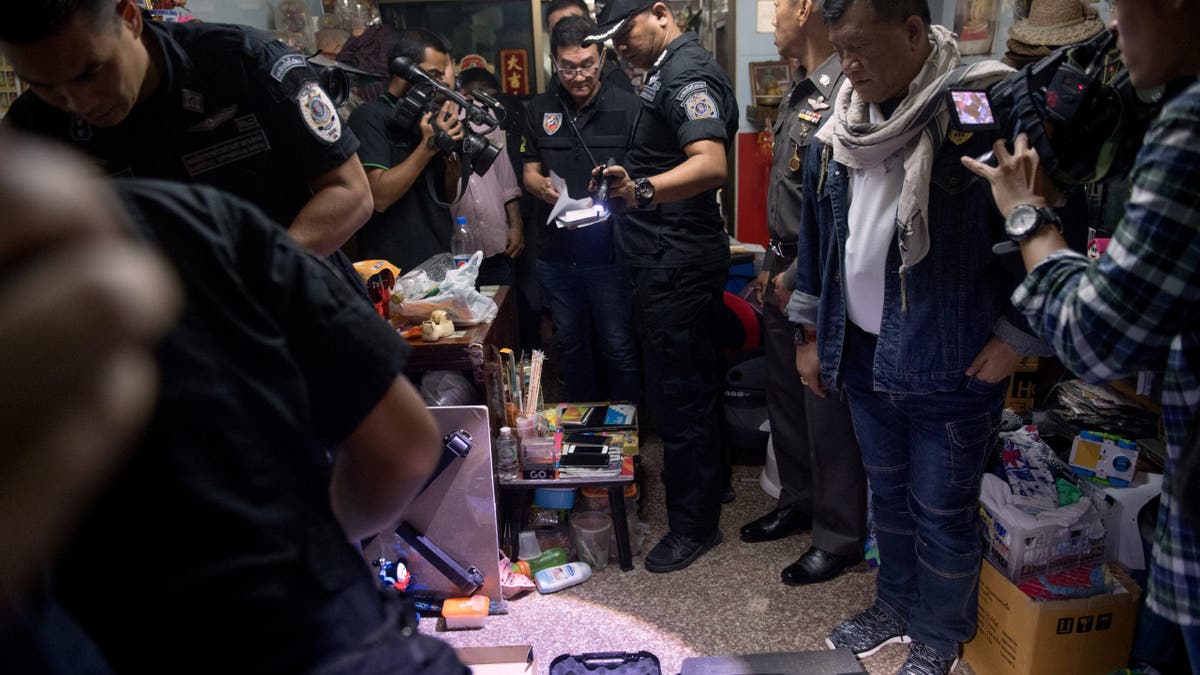
A Thai SWAT team, working with Thailand’s Narcotics Suppression Board, seized guns at a property in the Chinatown neighborhood of Bangkok on Jan. 17, 2018. (Roberto Schmidt/AFP via Getty Images)
The Thai authorities have intercepted more than four tons of crystal meth, two tons of ketamine and over 580 pounds of heroin in busts.
The narcotics board claimed that the drugs would otherwise end up in lucrative markets in nearby areas of Australia, Taiwan, Malaysia and Hong Kong, Newsflare reported.
-

 Education1 week ago
Education1 week agoVideo: President Biden Addresses Campus Protests
-

 Movie Reviews1 week ago
Movie Reviews1 week agoSabari Movie Review: Varalaxmi Proves She Can Do Female Centric Roles
-

 World1 week ago
World1 week agoEuropean elections: What do voters want? What have candidates pledged?
-

 News1 week ago
News1 week agoWhistleblower Joshua Dean, who raised concerns about Boeing jets, dies at 45
-

 Politics1 week ago
Politics1 week agoAustralian lawmakers send letter urging Biden to drop case against Julian Assange on World Press Freedom Day
-

 World1 week ago
World1 week agoBrussels, my love? Champage cracked open to celebrate the Big Bang
-
News1 week ago
A group of Republicans has united to defend the legitimacy of US elections and those who run them
-

 Politics7 days ago
Politics7 days agoHouse Dems seeking re-election seemingly reverse course, call on Biden to 'bring order to the southern border'
